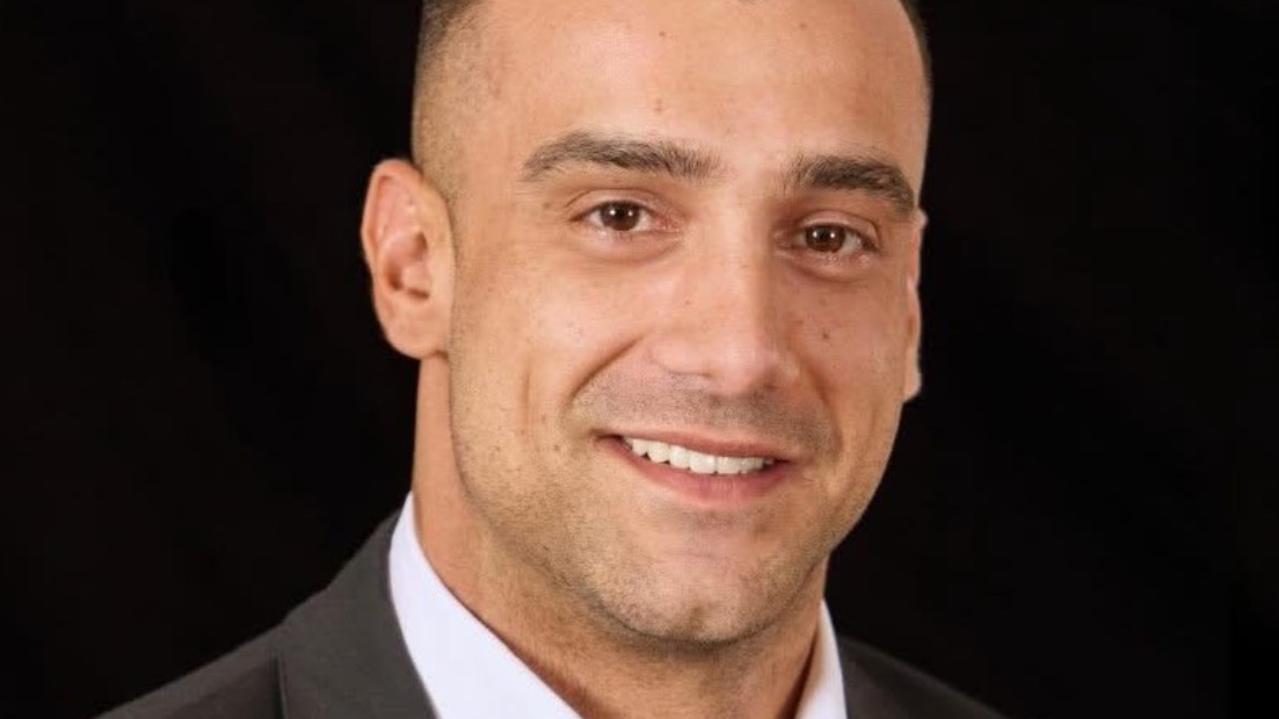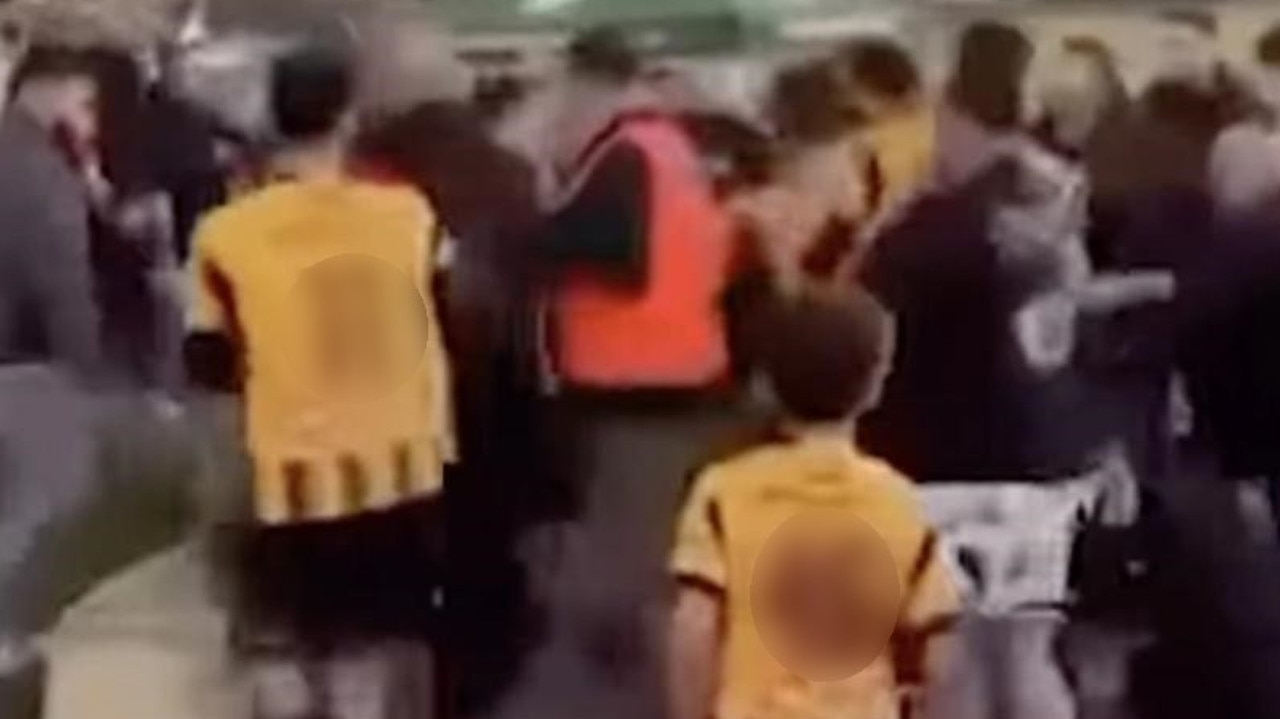Rookwood Cemetery’s Elephant House restored to former glory
IT’S a rainy Wednesday morning and the van carrying maintenance men rumbles up a narrow, bumpy lane.
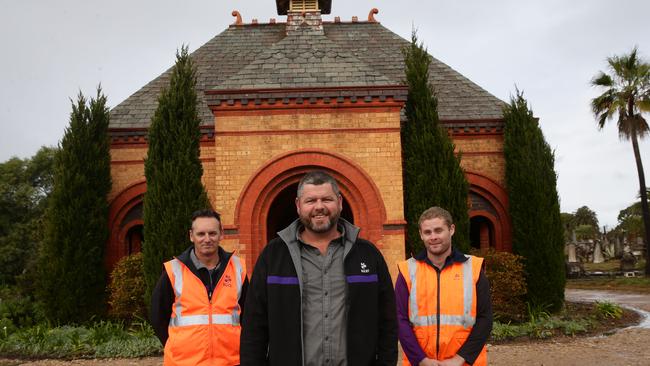
The Express
Don't miss out on the headlines from The Express. Followed categories will be added to My News.
- Rookwood Cemetery shakes off macabre image and reinvents itself as a tourist destination
- Normanhurst artist Kate Andrews’ cryptic idea wins art award at Rookwood Cemetery
IT’S a rainy Wednesday morning and the van carrying maintenance men rumbles up a narrow, bumpy lane.
These aren’t any ordinary workers and their destination isn’t any ordinary building, but a monument to the dead.
Suddenly a striking red and yellow Victorian structure appears out of the dimness, sticking out like a sore thumb among a sea of drab headstones.
Elephant House has stood in Rookwood Cemetery, the largest cemetery in Australia, longer than any living person.
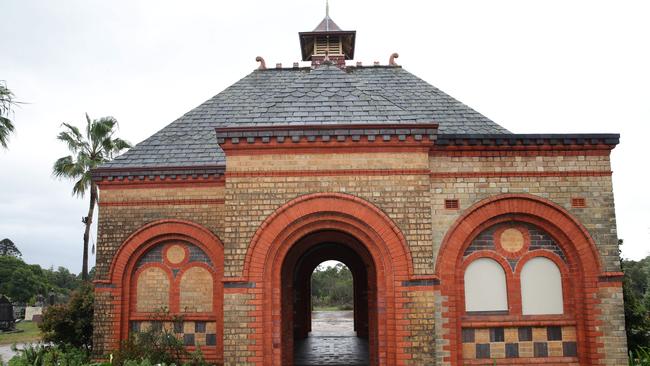
It has seen Sydney develop from settlers’ farmland in the mid-1900s to a sprawling urban city.
Rob Smart has worked in Rookwood Cemetery, maintaining about 200 hectares of necropolis infrastructure, including an extensive network of roads, for 18 months. The planning and development director and a crew recently spent six weeks restoring the “ornamental” Elephant House. It was built in 1891 as a rest house for cemetery visitors and has also been used as a ceremonial venue and office.
Smart has heard every cemetery joke under the sun. The “dead centre of town” is a favourite.
“It’s always a talking point,” he says.
“It starts off a multitude of conversations when it comes to people who are interested in Rookwood, everyone knows about Rookwood and the space — some people have been here, some people have family buried here, most people you talk to have some connection.”
It’s no surprise. Thousands upon thousands of graves and their silent inhabitants from every religious domination fill a space larger than Sydney’s CBD.
Elephant House has borne witness to some of the city’s most extravagant funerals.
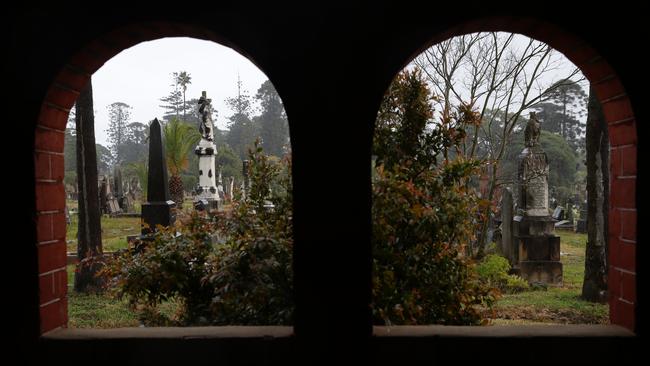
Mei Quong Tart, a notable Chinese merchant and darling of Sydney’s social scene, was buried in Rookwood with much fanfare in 1903. Other famous people buried here include renowned singer, composer and gramophone recording artist Peter Dawson, newspaper pioneer John Fairfax and legendary retail giant David Jones.
A faded sign at the entrance to Elephant House reveals in part why several restorations have been necessary: “$5000 reward for information on illegal dumping”.
In the 1970s and ’80s the structure was the target of vandals and homeless people sheltered there.
In 1986 vandals and squatters disappeared when Rookwood was fenced off.
Significant restoration began seven years later and the recent round of works involved mostly minor structural repairs.
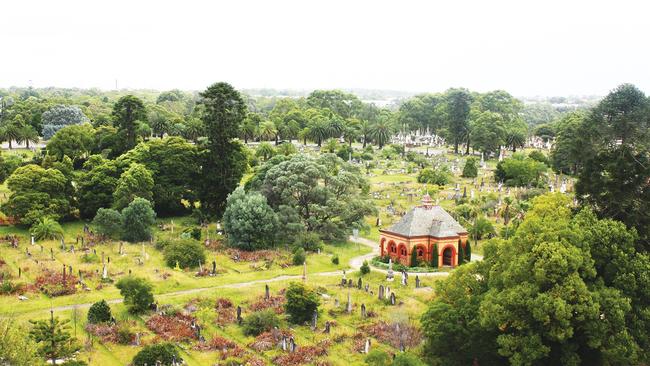
Smart considers it a privilege to preserve the history of a place so dear to the living and an eternal home for the dead.
“We’re working in such a historic part of the site and the age of the building, it adds a different aspect to your work,” he says.
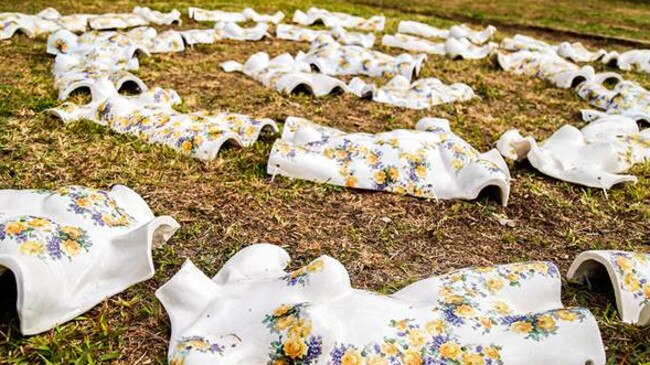
Hidden treasures
Rookwood Cemetery will host the eighth annual HIDDEN sculpture walk from September 23 to October 23.
The exhibition takes place in one of the oldest sections of the cemetery featuring sculptures from a range of new and emerging artists. The aim is to showcase the site’s unique aspects, including its history, culture, flora and fauna, and diverse topography. settings.
HIDDEN 2016 has attracted the largest response from artists yet with 150 artworks submitted. Forty six works have been selected, with artists from metro, regional and international areas involved. Free entry to the public.
There will also be school holiday art workshops in the September/October break.
Information: rookwoodcemetery.com.au


